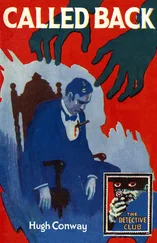Albert Edwards - Comrade Yetta
Здесь есть возможность читать онлайн «Albert Edwards - Comrade Yetta» — ознакомительный отрывок электронной книги совершенно бесплатно, а после прочтения отрывка купить полную версию. В некоторых случаях можно слушать аудио, скачать через торрент в формате fb2 и присутствует краткое содержание. Жанр: foreign_antique, foreign_prose, foreign_sf, на английском языке. Описание произведения, (предисловие) а так же отзывы посетителей доступны на портале библиотеки ЛибКат.
- Название:Comrade Yetta
- Автор:
- Жанр:
- Год:неизвестен
- ISBN:нет данных
- Рейтинг книги:4 / 5. Голосов: 1
-
Избранное:Добавить в избранное
- Отзывы:
-
Ваша оценка:
- 80
- 1
- 2
- 3
- 4
- 5
Comrade Yetta: краткое содержание, описание и аннотация
Предлагаем к чтению аннотацию, описание, краткое содержание или предисловие (зависит от того, что написал сам автор книги «Comrade Yetta»). Если вы не нашли необходимую информацию о книге — напишите в комментариях, мы постараемся отыскать её.
Comrade Yetta — читать онлайн ознакомительный отрывок
Ниже представлен текст книги, разбитый по страницам. Система сохранения места последней прочитанной страницы, позволяет с удобством читать онлайн бесплатно книгу «Comrade Yetta», без необходимости каждый раз заново искать на чём Вы остановились. Поставьте закладку, и сможете в любой момент перейти на страницу, на которой закончили чтение.
Интервал:
Закладка:
The last thing she read to him was a three-volume edition of Les Miserables . She was fifteen then, and her reading was frequently interrupted by his coughs. Perhaps he had caught it from the lad who was racing with death to graduate from the Encyclopedia. Benjamin's friends shook their heads mournfully. But he expected to recover soon; was he not taking his "patent medicine" regularly? And so to the wonderful symphony of Hugo's masterpiece Benjamin coughed out his life. The third volume was read, not in the little store, but in their bedroom in the Goldstein's flat. It was the last book Yetta read for several years. When it was finished, she had begun to be afraid; she did not have the courage to begin a new book. He was too sick to listen.
CHAPTER II
YETTA'S GIRLHOOD
The death of her father was a greater catastrophe to Yetta than she realized. She felt only the personal loss. Her uncle took care of the financial matters, sold the book-store, and so forth. When the funeral expenses were paid, he said there was nothing left. Coming back from the cemetery, her aunt, in as kindly a manner as was possible to so woe-begone and soured a woman, tried to explain to her what it meant to be penniless. Leave school? Go to work? She hardly listened. Her sorrow was too real, too wild and incoherent.
The Goldsteins had three children. Isaac was eighteen. Two years before he had graduated from the House of Refuge – a pickpocket of parts. He had his ups and downs, but on the whole he found money "easy," and hardly a week passed when he did not hand his mother a few dollars.
The twin daughters of sixteen were working and brought their wages home. Rosa was anæmic, querulous, and unattractive. She worked "bei buttonholes." A slight curvature of the spine, which had become apparent in her childhood, had developed into a pitiful deformity after the years bent over a machine. Rachel had monopolized all the charms of health and good spirits which should have been divided between them. Her face looked much younger than Rosa's, but her body had developed into a pleasing womanhood which had been entirely denied her sister. She was not beautiful, but she was red blooded, merry, and likable. She was a milliner and earned twice as much as Rosa.
So the Goldsteins should have been fairly prosperous, but the father's craving for alcohol had grown more rapidly than the earning capacity of his children. Poverty had weighed too heavily on Mrs. Goldstein to allow her to tolerate an idler, and besides she had always looked with disapproval on Yetta's unwomanly education. It seemed almost impious to her to have a girl in school. She had perjured herself blissfully about the age of her own daughters to avoid the Truant Officer. For a few days the family left Yetta alone in her room to cry. Then they jerked her out of the stupor of her grief, and threw her into the cauldron of modern industry.
Rachel had seen a sign which advertised the need of "beginners" in the Vest Trade. Yetta followed her docilely up two flights of dirty stairs into a long work-room, which had been made by knocking the partitions out of a tenement-house flat. It was a gloomy place, for the side windows were faced by a dingy brick wall three feet away. The end windows looked out on Allen Street. The tracks of the elevated were on a level with the floor, and every few minutes the light which might have been expected from this quarter was cut off by the rush of a train. Artificial illumination was needed all the year round.
In the street below children shouted and cried; pushcart peddlers hawked their wares in strident, rasping voices; heavy trucks, loaded with clattering milk-cans, rattled deafeningly over the cobblestones. The chaos of noise caught in the narrow cañon of the street seemed to unaccustomed ears a pandemonium which must be audible in high heaven.
But none of this noise entered the long dark room two flights up. At one end of the shop a cheap electric motor threw its energy into two revolving shafts along the ceiling; these in turn passed it down a maze of roaring belts to a dozen sewing-machines – all twelve going at top speed. It sounded as if no one of the many bearings in the room had been oiled, as if each of the innumerable cogs in the machines were a misfit. The sound seemed like a tangible substance which could be felt. There was no room left in the shop for the noises of the street. If Gabriel had blown his horn on the sidewalk below, the silent women bent over the speeding machines would not have heard – they would have missed the Resurrection.
Dazed by this strange and fearsome environment, Yetta caught tight hold of her cousin's hand. But Rachel, the adventurous, would not have been dismayed in Daniel's den of lions. She boldly led the way into the "office." Half a dozen women, all older, were already in line. The boss – a rotund, narrow-eyed man – was looking them over. But as soon as he saw the young girls he lost interest in the women.
"This is my cousin, Yetta Rayefsky," Rachel said. "She'd make a good beginner."
"Afraid of work?" he asked gruffly.
Yetta was speechlessly afraid of everything. But Rachel answered for her – a flood of extravagant, high-pitched eulogy.
"One dollar a week, while she's learning. Regular piece price when she gets a machine."
One of the older women, seeing the hopelessness of her own situation, – all the bosses preferred youth, – began to wail.
"Shut up!" the boss growled. "I will take the girl. Get out, all of you."
So Yetta was employed. At first the work consisted of carrying, piling, and wrapping bundles of vests. The loads were very heavy for her unpractised back. But she managed to live through the first day, and the next, and gradually got used to it. After a long wait she was put at a machine.
Even in such grossly mechanical work as sweat-shop labor, brains and youth count. Yetta's fingers were still plastic. Before long she had mastered the routine movements. Above all, she proved quicker than the other women in such emergencies as a broken thread. In less time than usual she worked to the top and became the "speeder," drawing almost double pay.
During the years which followed, while all that part of her brain which had to do with manual dexterity was keenly alive, the rest – the part of her brain in which her father had been interested – went to sleep. It was inevitable. Perhaps if she had been older when the crisis came, she might have made a struggle against her environment. She might have resisted her weariness for an hour or so after she came home, might have propped her eyes open and continued her studies, but she was only fifteen.
At first, while still a "beginner," her earnings were so small that there was some measure of charity in her aunt's sheltering of her. She was constantly reminded of the need of increasing her wages. But before this incentive had passed, before her pay began to amount to a fair charge for her board and lodging, before her spirit had recovered from the lethargy which had followed the loss of her father, she had been taken captive by "Speed." It was the keynote of her waking life. Every detail of the sweat-shop, the talk of her table mates, the groaning song of the belts – even the vitiated air – were "suggestions" beating in on her plastic consciousness, urging ever increasing rapidity.
It had become a habit for her to hand over all her wages to her aunt. She had her father's lack of guile and less experience. The bedroom which Benjamin had shared with his daughter was rented to a stranger. Yetta had to sleep in the same bed with the twins. She had to wear their outgrown clothes. But even if she had realized how little she was getting in exchange for her wages, she would not have had the courage to go out among strangers. And she had not sufficient energy – after all the machine took – to argue about it with her bitter, hardened aunt.
Читать дальшеИнтервал:
Закладка:
Похожие книги на «Comrade Yetta»
Представляем Вашему вниманию похожие книги на «Comrade Yetta» списком для выбора. Мы отобрали схожую по названию и смыслу литературу в надежде предоставить читателям больше вариантов отыскать новые, интересные, ещё непрочитанные произведения.
Обсуждение, отзывы о книге «Comrade Yetta» и просто собственные мнения читателей. Оставьте ваши комментарии, напишите, что Вы думаете о произведении, его смысле или главных героях. Укажите что конкретно понравилось, а что нет, и почему Вы так считаете.












